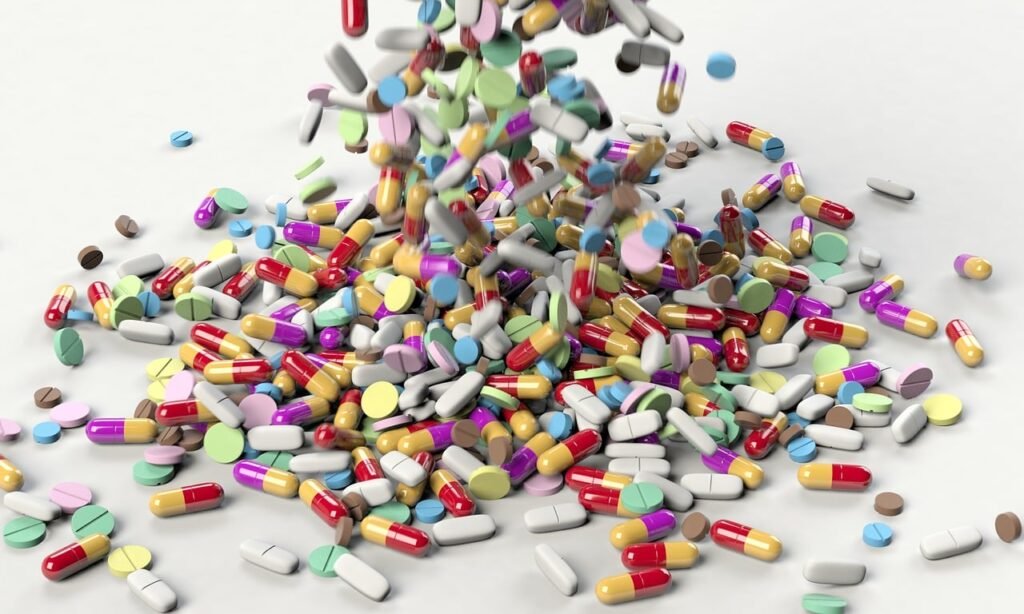The important place of drugs in treating ailments, alleviating chronic diseases, and enhancing overall quality of life is beyond dispute. The differences they make can be for curing a disease, managing symptomology of one, or even preventing such future health problems. However, medicines being a great boon are sometimes faced with the threat of side effects. These range from mild and temporary effects to some that can be truly threatening and life-altering. Not all patients will experience side effects; however, it is imperative to be aware of the possible side effects among medications and how to handle them if they appear.

Common Side Effects of Medicines
Side effects are a consequence of the very mechanisms by which the medications act within the body. Sometimes they may seem entirely unexpected, but certain signs and symptoms become more common with many drugs. Some of the most common yet vexatious side effects include the following:
Nausea and vomiting. Many drugs may induce nausea, especially with the growing use of complementary antiemetics. These include antibiotics that may elicit nausea in their own right; analgesic medications; and chemotherapeutic agents.
Due to disturbances of normal functioning in the digestive system, opposite effects-like constipation and diarrhea-are well-recognized side effects of several pharmacological agents, analgesics and antibiotics being some.
The principal side effects of antihistamines and antidepressants involve dry mouth, which will further aggravate swallowing difficulties.
Drowsiness is a certain state of drowsiness and tiredness induced by medications such as analgesics, anxiolytics, and sleep disorder medications.
Skin rashes: Includes several skin reactions, from minimal to severe.
Headache: Birth control pills and antihypertensive medicines are examples of headache-producing drugs.
The above side effects could be annoying, while others may be frightening.
Serious Side Effects to Be Observed
Amid these serious side effects that may arise from medications, a medical emergency is being invoked. Swaying from taking undue medication if any of the following conditions arise must be done, and the attending physician should be consulted without delay.
Anaphylaxis: Severe allergic symptoms may cause difficulty in breathing, swelling of the lips, tongue, and/or throat, and a rash. Anaphylaxis can be fatal and is considered an emergency.
Stevens-Johnson Syndrome (SJS) and Toxic Epidermal Necrolysis (TEN): Both are life-threatening skin disorders characterized by widespread cutaneous rash and peeling with feverish states. The bottom line is that TEN is worse than SJS, culminating in an extensive area of necrosis of the skin, resembling that of serious burns. Organ failure, among them renal and pulmonary systems, may arise as complications of SJS or TEN.
Drug Reaction with Eosinophilia and Systemic Symptoms (DRESS): This rare but serious condition may exhibit widespread rash, lymph node swelling, impairment in liver function, or abnormalities with blood counts. The heart and lungs may also be implicated.
Contact your healthcare provider or go to the Emergency Room if you experience any of these symptoms listed above. Being alert to these serious side effects to the FDA will also assist with enhanced drug safety for others in the future.
Interactions with Your Other Medications: When Medications Collide
It would help to remember that side effects may also occur from interactions between two or more drugs. When one drug effects another in an unexpected way, it may result in an adverse and sometimes even fatal situation. For instance, taking a blood thinner in conjunction with nonsteroidal anti-inflammatory drugs (NSAIDs) such as ibuprofen would pose a higher bleeding risk.
There are thousands of such known drug interactions, thereby requiring health care providers to seek them with utmost care before prescribing medications. Consequently, as a safeguard against any dangers posed by drug combinations, always keep your health care practitioner and pharmacist informed about all other medications you are taking, including over-the-counter drugs, vitamins and supplements.
The Good Side-The Unwanted Side Effects
Unwanted side effects are not always bad. In fact, in some cases, a launched drug has been found to produce some beneficial unintended side effect, which led to another treatment altogether. For example:
Minoxidil was developed primarily for the treatment of hypertension, but the unwanted side effect of hair growth led to its new application as Rogaine, that is the topical preparation for the treatment of hair loss.
Sildenafil was supposed to be a cure for hypertension and angina; however, being useful in treating erectile dysfunction was a real surprise. It did so by increasing blood flow to the penis.
These positive side effects show that sometimes with the help of research and observation, who knows-good fortune may shine upon an entirely new and good use for an old drug.
Any Untoward Effects And What You Should Do About Them
If any side effects arise in connection with your medication, do communicate with your healthcare provider. They can help decide whether the benefits of the medication offset any side effects and the proper course of action to take next. In less serious cases, the healthcare provider will typically offer one of the following options:
Let Time Take Its Course: Some side effects eventually subside as the body accommodates itself to the medication. All that may be required is to allow time for the body to adjust if the effects are minimal.
Decrease the Dose: If the side effects are not very harmful but otherwise intolerable, the healthcare provider may consider recommending a reduced dose.
Switch Medications: If the effects are more severe or persistent, stopping the medication altogether with the idea that it would be replaced by another freer of troublesome side effects may become necessary. Since in most cases, there is ample room for treatment alternatives, feel free to bring this topic up with the physician.
Adding Medication: A second medicine might sometimes be added specifically to counteract the side effects of the first. Suppose, for example, a drug gives rise to headaches. In that case, your doctor may suggest that you try an over-the-counter pain-relieving medication solely for the purpose of relieving headache discomfort. Care needs to be taken with that practice so that the other drug does not then unleash its own whole cascade of unwanted effects.
If the side effect you are feeling becomes too much for you to bear, contact your doctor. He/she might then decide if the occurrence is something transitory or something that can clinically be actioned. With severe presentations or life-threatening symptoms, for instance, those suggestive of anaphylaxis or serious skin reactions, immediate medical help should be sought.
Bear in mind that side effects occur during the use of medicines- but side effects need not derail your treatment. Open communications with your doctor will provide the opportunity to work out something for you with the least amount of negative effects.
Concluding Notes
While side effects are an unavoidable part of the drug therapy cabinet, they are, by no means, irretrievably limiting in their scope. When side effects are known, proper care can be administered, thus making the treatment tolerable and effective. So, keep communicating with your healthcare provider, discussing and querying any concern arising from your medication and treatment, and collectively find the suitable approach for your health and welfare.



